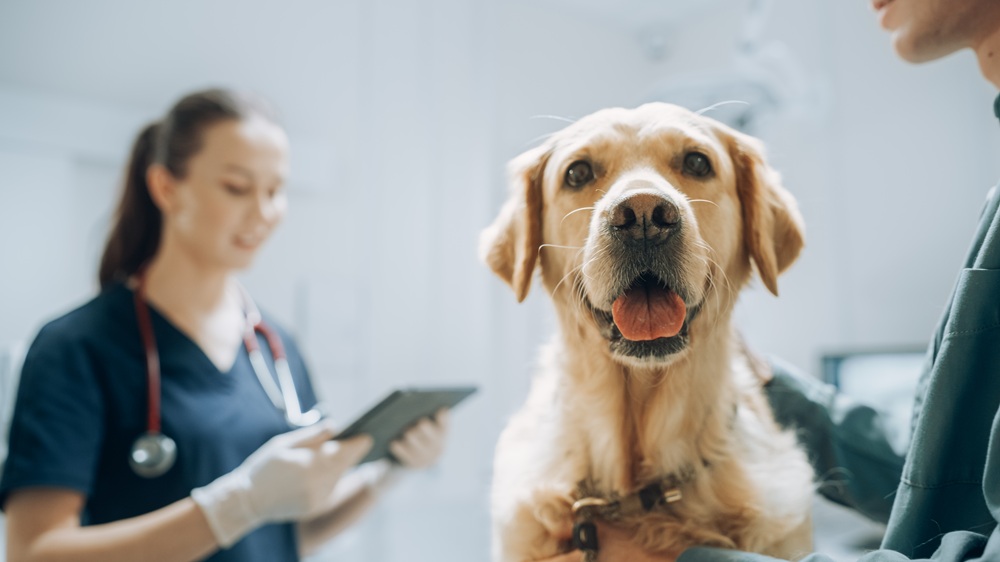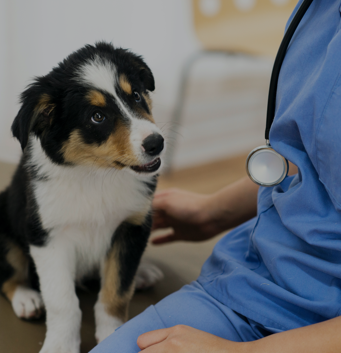Exactly How a Veterinary Specialty Hospital Can Heal Your Animal's Conditions With Advanced Techniques
Veterinary specialty hospitals play a necessary duty in attending to intricate health and wellness concerns in animals. They make use of sophisticated methods and technologies that improve diagnosis and therapy. With access to specialized services, animal owners can locate customized services for their pets' conditions. This elevates important inquiries regarding the specific methods utilized and the benefits they supply. Understanding these elements can significantly impact an animal's healing journey.
Recognizing the Role of Veterinary Specialty Hospitals
Main care veterinarians give vital services for pet health and wellness, vet specialty hospitals play an important duty in attending to complex medical conditions that call for advanced diagnostics and treatment. These facilities are geared up with specialized innovation and seasoned professionals that concentrate on particular locations of veterinary medicine, such as oncology, neurology, and cardiology.
Veterinary specialty hospitals promote a joint method, commonly functioning in combination with a family pet's primary veterinarian to develop complete care plans. They give access to innovative imaging methods, such as MRI and CT scans, which are not commonly offered in basic facilities - Learn More. Additionally, these hospitals provide extensive care units for seriously unwell animals, making sure day-and-night tracking and support
Specialized Services Supplied by Veterinary Professionals
Veterinary professionals give important services that boost pet healthcare, particularly via sophisticated diagnostic imaging strategies. These tools enable exact assessments of complex clinical problems, leading to a lot more efficient targeted therapy strategies. By incorporating these specialized solutions, vet hospitals can significantly boost person outcomes and total health.
Advanced Diagnostic Imaging
Advanced analysis imaging plays a necessary role in contemporary vet medication, making it possible for experts to get comprehensive insights into a family pet's wellness. Techniques such as X-rays, ultrasound, computed tomography (CT), and magnetic resonance imaging (MRI) allow vets to imagine internal structures without intrusive treatments. These advanced imaging modalities aid in identifying a range of problems, from tumors and cracks to body organ abnormalities. By supplying clear images, they enhance the accuracy of assessments, which is essential for efficient treatment planning. In addition, specialized veterinary radiologists translate these images, making sure that subtle issues are not neglected. Eventually, progressed diagnostic imaging contributes in delivering considerable treatment, as it enables early discovery and treatment in a pet's clinical problems.
Targeted Treatment Strategies
Targeted treatment plans are important for resolving the specific wellness demands of pets, guaranteeing that each animal receives personalized treatment tailored to its one-of-a-kind problem. Veterinary professionals create these plans based upon complete analyses, including advanced analysis imaging and laboratory tests. By concentrating on the private family pet's medical diagnosis, type, way of life, and age, specialists can suggest reliable therapies, ranging from drug adjustments to surgical interventions. These plans also integrate follow-up care and keeping an eye on to track the pet dog's progress and make necessary adjustments. This strategy advertises optimal results and enhances the overall top quality of life for animals encountering complicated health and wellness challenges. Ultimately, targeted treatment strategies stand for a dedication to providing the greatest requirement of vet treatment.
Advanced Diagnostic Techniques for Accurate Diagnoses
As pets deal with progressively complex wellness challenges, the assimilation of sophisticated diagnostic methods has ended up being crucial for achieving accurate diagnoses. Veterinary specialty hospitals use cutting edge imaging technologies, such as MRI and CT checks, to picture internal frameworks with amazing quality. These methods permit veterinarians to identify irregularities that might not show up via standard methods.
In addition to imaging, advanced lab examinations, consisting of hereditary and biomarker evaluations, offer important understandings into hidden problems. These examinations enable vets to discover conditions at earlier phases, facilitating prompt intervention (Learn More). Additionally, using endoscopy enables direct visualization of internal body organs, assisting in the diagnosis of respiratory system and stomach problems
Innovative Therapy Choices for Complex Conditions
Ingenious treatment choices for complicated conditions in pet dogs have actually arised as a critical focus within veterinary specialty hospitals. Utilizing innovative diagnostic devices, these centers improve their capacity to determine problems precisely and customize appropriate treatments. In addition, the implementation of minimally invasive procedures and advanced recovery methods provides family pets a much better chance at healing with minimized discomfort.
Sophisticated Diagnostic Equipments
While the landscape of vet medication remains to develop, advanced diagnostic tools have emerged as important possessions for addressing complicated conditions in pets. These innovative innovations, consisting of digital imaging, ultrasound, and molecular diagnostics, enable vets to obtain accurate details regarding an animal's health and wellness condition promptly. High-resolution imaging techniques can expose detailed details of internal structures, making it possible for accurate assessments of diseases or injuries. In addition, hereditary screening supplies insights right into hereditary conditions, assisting tailored treatment plans. By leveraging these ingenious diagnostic tools, veterinary specialty hospitals can enhance their capacity to recognize disorders that might have previously gone undetected. Eventually, these improvements contribute to boosted end results and enhance the overall top quality of care given to beloved pet dogs.
Minimally Invasive Treatments
Innovations in veterinary medication have paved the method for minimally invasive treatments, which provide brand-new therapy options for complex conditions in pet dogs. These innovative methods, such as laparoscopy and endoscopy, allow veterinarians to carry out surgeries with smaller sized cuts, decreasing injury and recuperation time. By using specialized tools and cams, vets can diagnose and treat concerns like tumors, gastrointestinal conditions, and joint troubles with precision. This strategy lessens pain and causes quicker recovery, making it possible for pet dogs to go back to their typical tasks faster. Vet services. On top of that, minimally intrusive treatments frequently lead to much less scarring and a lower risk of complications. As veterinary specialty hospitals take on these sophisticated techniques, animal proprietors can really feel more positive in their pets' treatment and general well-being
Advanced Rehabilitation Techniques
As vet medicine develops, advanced rehabilitation techniques are becoming vital for managing complex problems in family pets. These techniques include a variety of cutting-edge therapy choices, including hydrotherapy, laser treatment, and physical treatment. Hydrotherapy uses water resistance to boost movement and strengthen muscle mass, helpful for pet dogs recovering from surgical treatment or injury. Laser therapy advertises healing by minimizing inflammation and pain, cultivating quicker recovery times. Physical treatment employs targeted exercises to improve strength and versatility, customized to every pet dog's particular requirements. In addition, modalities like acupuncture and chiropractic care modifications can even more support rehabilitation by alleviating discomfort and boosting overall well-being. Veterinary specialty hospitals are progressively including these strategies, making sure animals obtain detailed care that attends to both psychological and physical recuperation, eventually improving their lifestyle.
The Relevance of a Multidisciplinary Approach
A multidisciplinary approach in vet treatment considerably improves the therapy end results for pet dogs, as it integrates knowledge from different specialties to resolve intricate wellness concerns. This collective technique involves vets, experts, service technicians, and assistance personnel collaborating to develop thorough treatment plans customized per pet's distinct demands (Veterinary). By integrating knowledge from areas such as surgical treatment, internal medication, oncology, and rehabilitation, veterinarians can identify hidden conditions that may or else go undetected
Additionally, this strategy fosters communication amongst employee, making sure that all facets of an animal's health are thought about. A pet dog recuperating from surgical procedure may benefit from input from both a cosmetic surgeon and a recovery expert, leading to an extra effective healing procedure. Eventually, a multidisciplinary approach not just improves the top quality of treatment however also enhances the overall health of pet dogs, providing them with the most effective possibility for an effective healing and long-term wellness.
Cutting-Edge Innovation in Veterinary Medicine

With the rapid advancement of innovation, veterinary medicine has actually embraced cutting-edge devices and strategies that considerably boost diagnostics and treatment alternatives for animals. Advanced imaging innovations, such as MRI and CT scans, enable veterinarians to visualize interior structures with extraordinary clearness, aiding in exact medical diagnoses. Additionally, minimally intrusive surgical methods, supported by robotic-assisted systems, enhance accuracy and reduce healing times for family pets.
Telemedicine has likewise become a necessary resource, allowing vets to seek advice from pet dog proprietors remotely, thus promoting prompt treatments. In addition, the integration of fabricated knowledge in assessing clinical data adds to a lot more effective treatment plans tailored to individual demands. Advanced laboratory tools enables quick blood evaluation and pathogen detection, promoting punctual clinical responses. As vet specialty hospitals remain to integrate these developments, they not only boost the quality of care yet additionally considerably enhance the general well-being of pet dogs.
Success Stories: Real-Life Examples of Family Pet Recovery
Numerous heartwarming success tales show the exceptional recoveries of pet dogs dealt with at vet specialty hospitals. One such instance involved Bella, a Golden Retriever diagnosed with a severe orthopedic problem. After advanced surgical intervention and recovery, Bella was not just able to stroll once again however likewise to run joyfully in the park, much to her proprietors' pleasure.
Another motivating tale attributes Max, a feline with persistent kidney illness. With specialized nutritional monitoring and cutting-edge treatments, Max's condition stabilized, permitting him to regain his power and appetite. His proprietors were satisfied to see him go back to his playful self.

Frequently Asked Concerns
What Should I Expect Throughout My Animal's Specialty Examination?
Throughout a specialized appointment, family pet proprietors can expect an extensive exam, comprehensive case history conversations, analysis tests, and customized treatment choices. The vet expert will give insights and recommendations for the pet dog's details health needs.
How Can I Find a Veterinary Specialty Hospital Near Me?
To discover a vet specialty hospital nearby, one can use online online search engine, examine neighborhood directories, or look for recommendations from primary vets. Furthermore, pet dog owner online forums can provide valuable understandings and experiences concerning nearby centers.
Are Specialty Services Covered by Animal Insurance?
Specialty solutions may be covered by pet insurance coverage, but protection differs by policy. Proprietors must thoroughly examine their insurance coverage strategy details and consult their company to understand the degree of protection for specialty vet services.

For How Long Will My Family pet's Treatment Take?
The duration of an animal's treatment can differ substantially, often varying from a couple of days to numerous weeks - Vet services. Variables influencing this timeline include the specific condition, treatment type, and the family pet's general health and wellness and feedback
What Are the Expenses Related To Specialty Veterinary Treatment?
The costs related to specialty veterinary treatment can vary widely, normally varying from hundreds to hundreds of dollars. Aspects influencing these expenses consist of the intricacy of the problem, required therapies, and diagnostic treatments required for effective care.
Veterinary specialty hospitals play a crucial function in dealing with intricate wellness problems in pets. Primary care veterinarians supply vital solutions for pet health, vet specialty hospitals play a crucial duty in resolving complex medical problems that need innovative diagnostics see it here and treatment. Veterinary specialty hospitals assist in a joint technique, usually working in conjunction with an animal's key veterinarian to produce extensive treatment plans. Ingenious therapy alternatives for complex conditions in animals have arised as an essential focus within veterinary specialty hospitals. A multidisciplinary strategy in vet care significantly enhances the treatment results for pet dogs, as it incorporates expertise from various specializeds to deal with intricate health concerns.